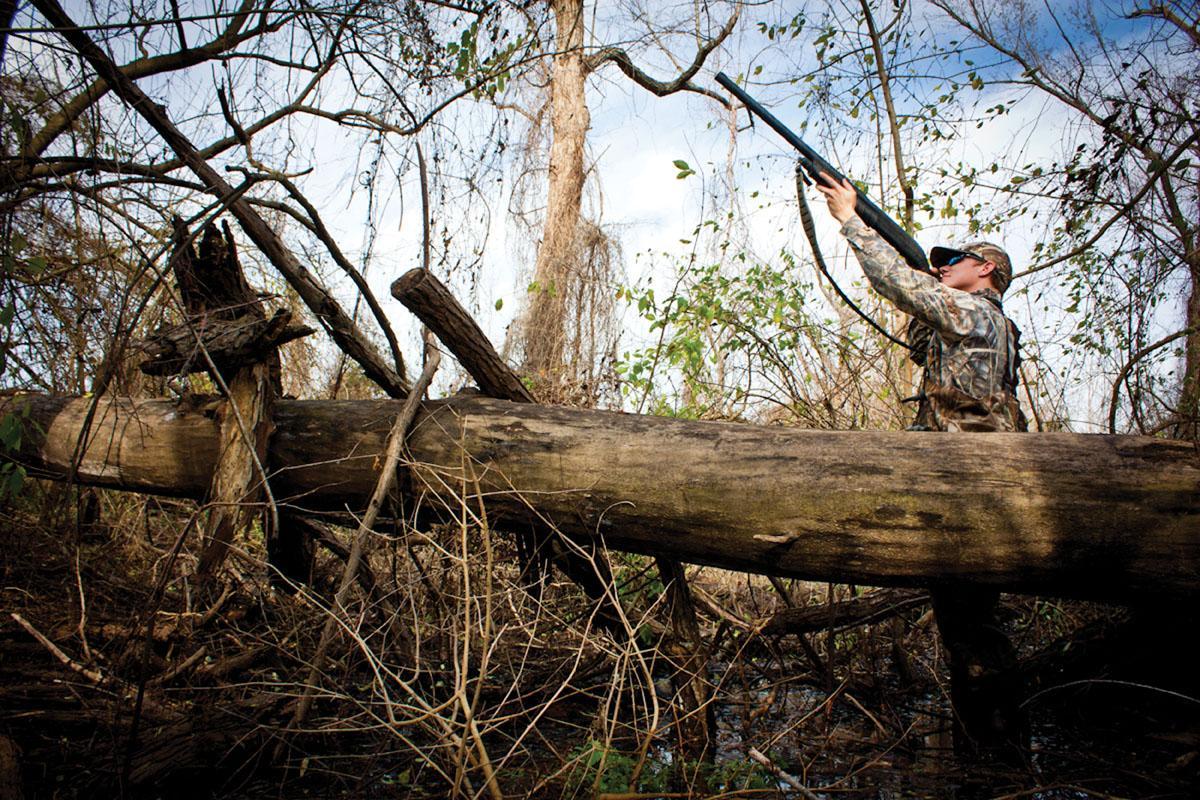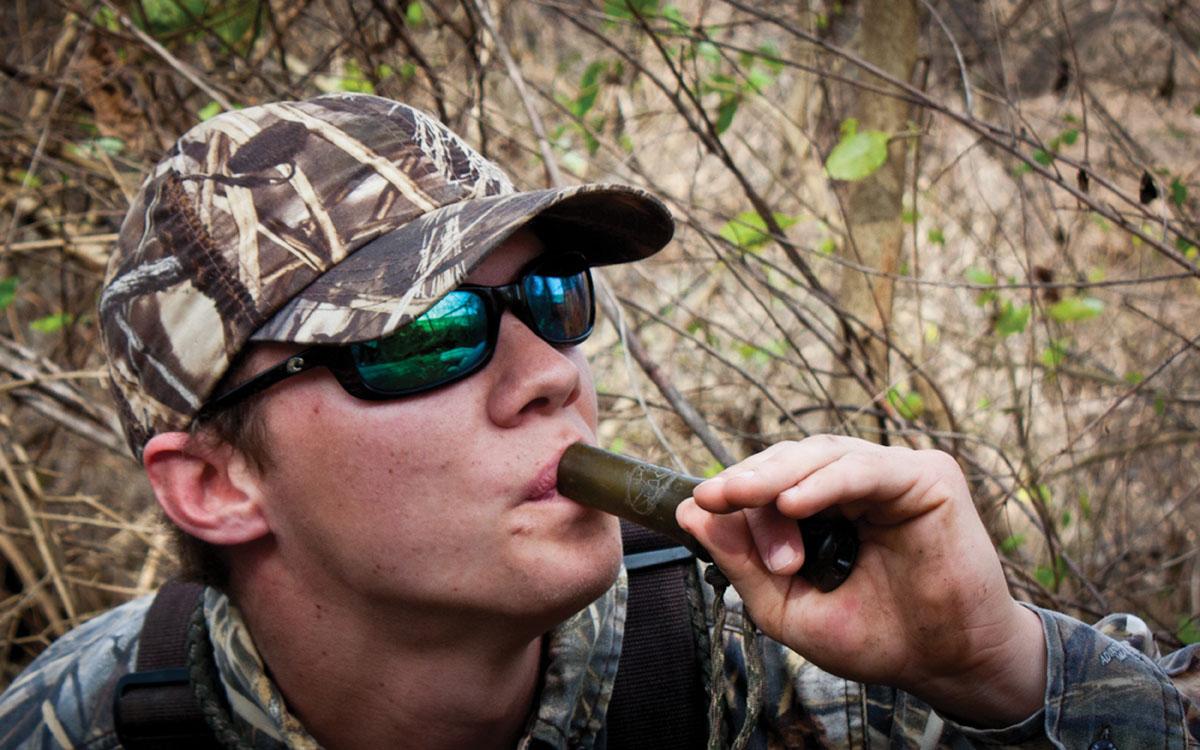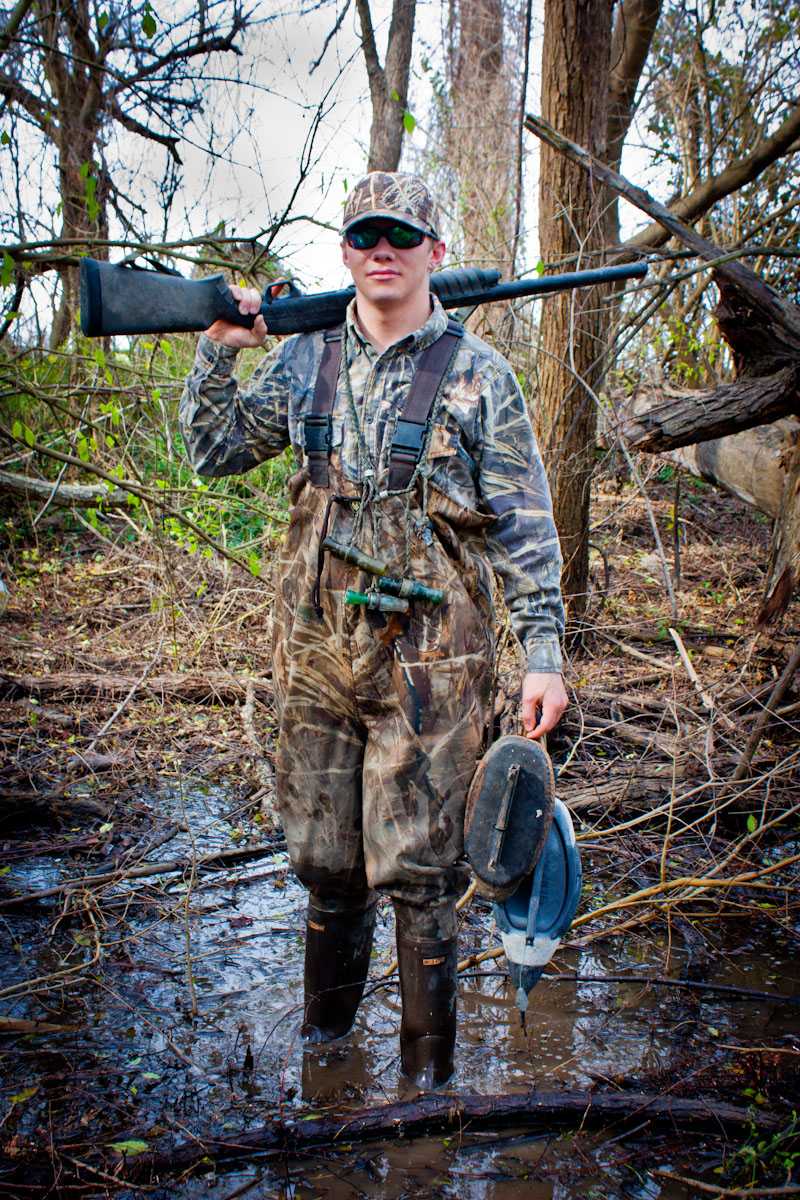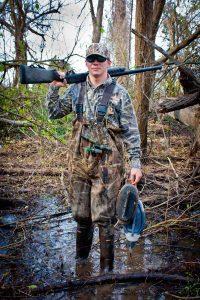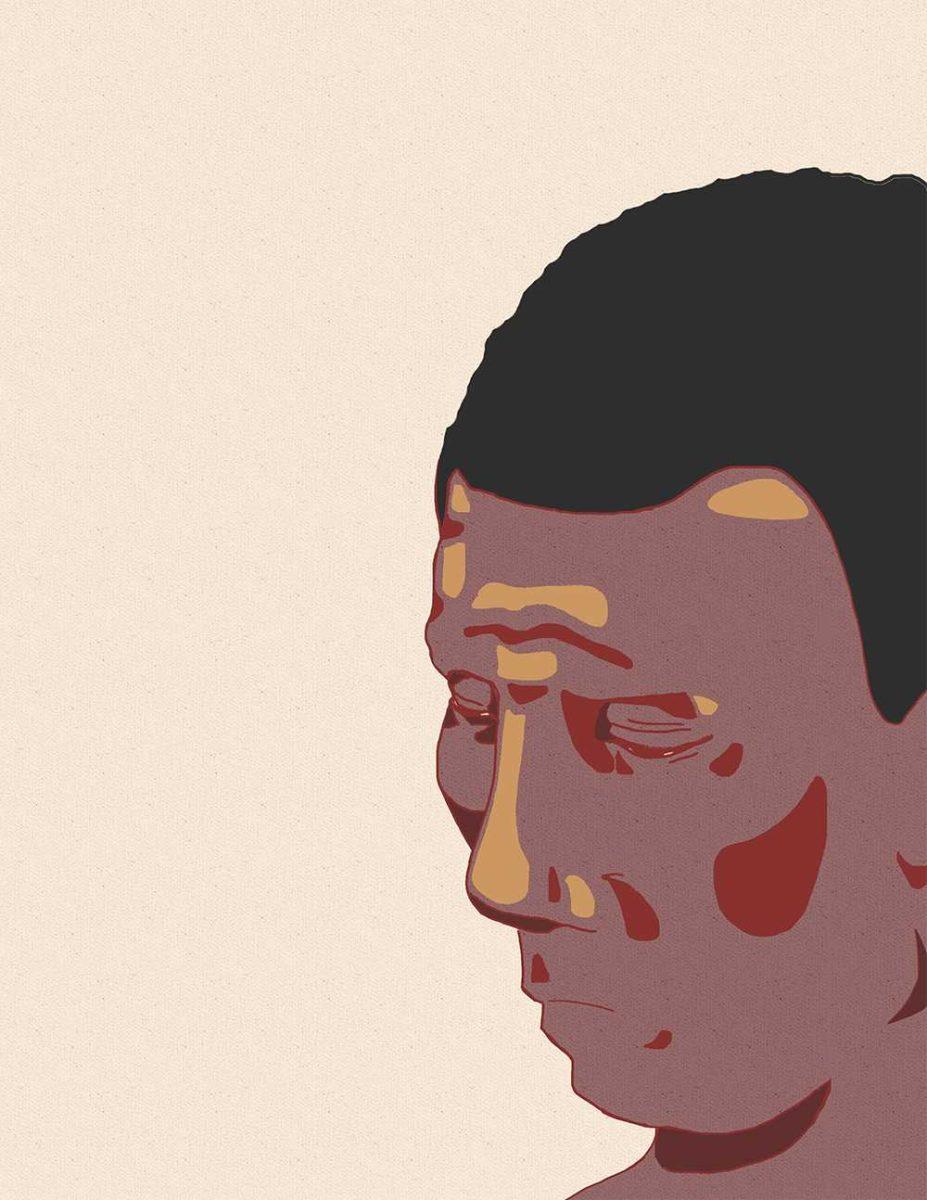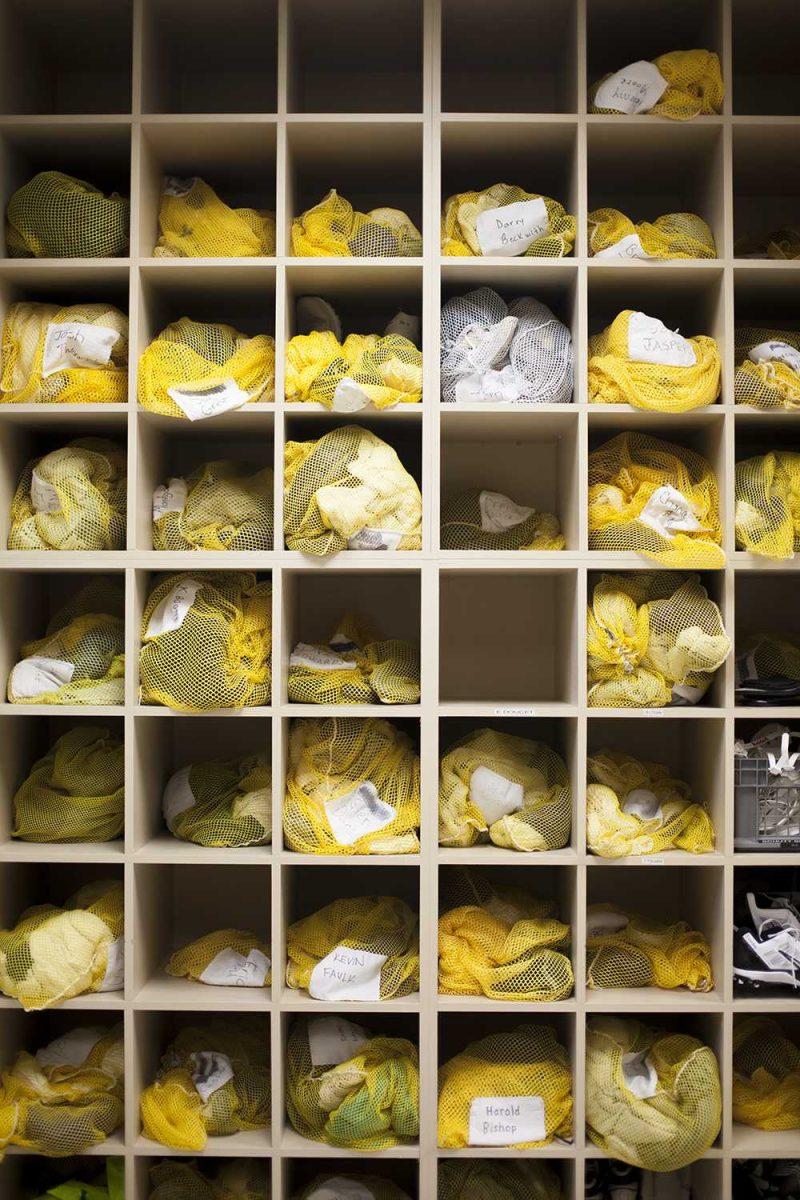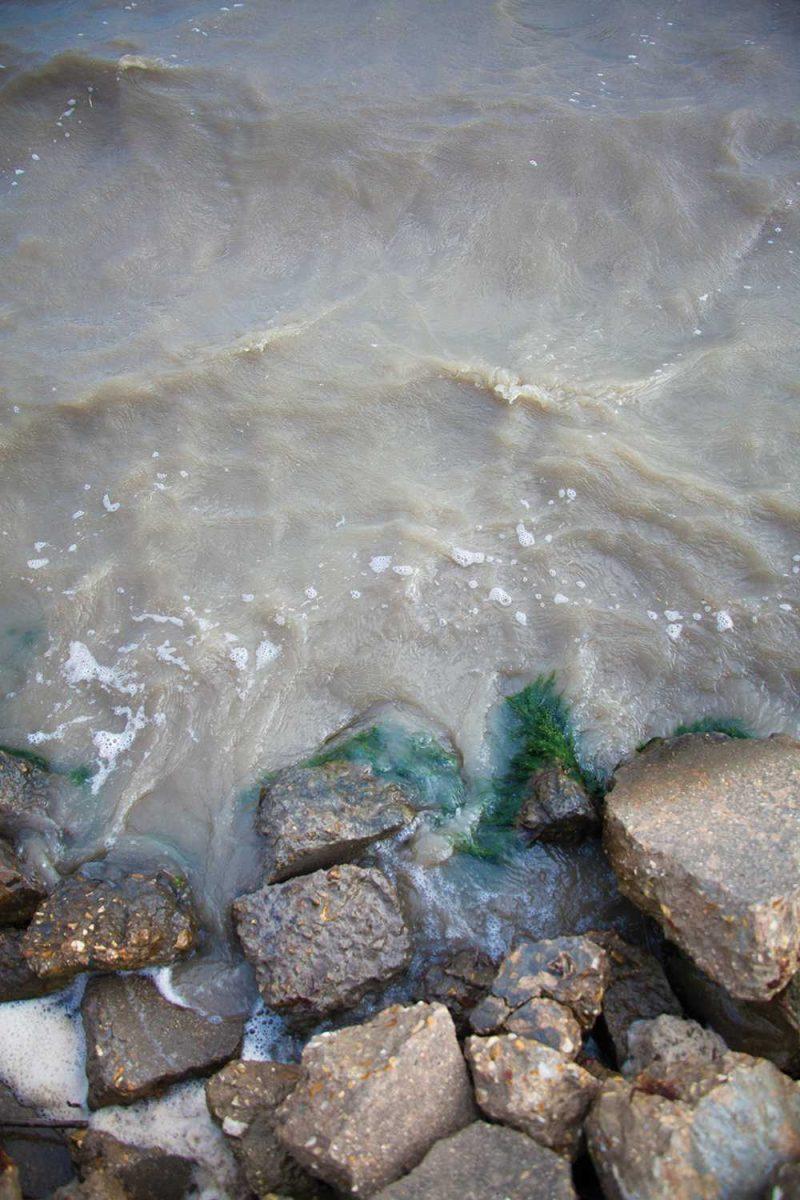The Lure of Hunting
Scott Duplantis shot a duck for the first time when he was 6 years old but pulling the trigger wasn’t as interesting as holding the creature in his hands.
“Staring at this bird, looking at it for a while really made me appreciate it,” said the wildlife biology junior. “It’s really something sacred.”
Duplantis explained “manipulating and harvesting” a wild animal nurtured a sense of pride, accomplishment and respect he’s since fortified.
“When you hunt, you appreciate the integrity of a wild animal, and you respect it. How you got it — that’s what really puts the love into it,” he said. “That’s what happened with me.”
Duplantis duck hunts as much as he can during the 60-day season. During winter break, he often takes the 10-minute drive from his hometown of Erath for some quality time in the duck blinds (camouflaged stands where hunters call and wait for birds to fly near). He also deer hunts at least once a year, which can take more work and organization, but is “just as fun.” Winter months mean hunting time for Duplantis. Rising early, watching a sunrise and eating Honey Buns on the wait all make hunting worthwhile, he said. He’s often shot his limit of ducks — six in Louisiana — and remained in his blind to take everything in for a little longer.
Changing Landscapes
Duck hunting in the marshes taught Duplantis how the ecosystem works, he said, and also how some problems can prevent it from functioning. With natural and manmade factors disrupting the processes of the marsh land, ducks are scarce and regulations are stringent, Duplantis said.
“When my grandfather and my great-grandfather hunted, they could kill mass quantities of ducks,” Duplantis said. “Nowadays there’s been an increase in hunter numbers which really isn’t all a bad thing, but when you add a decrease in natural habitat to that, it becomes a problem.”
This decrease in hunting grounds can largely be attributed to land development, according to Mike Benge, senior vice president of development for Ducks Unlimited in Louisiana. With more land used for residential or industrial growth, suitable habitat for migratory birds shrinks. And as more land is transformed for human use, this affects the hunting grounds around it.
Benge theorised about a landowner/farmer who is affected by land changing around his own property to explain these effects.
“Your area’s changed,” he explained theoretically. “There used to be 25,000 acres around you of all marsh. Now it’s down to 5,000 because of all the subdivisions and golf courses and houses and plants. Or they’ve converted it to [agricultural] land like sugar cane — that’s not suitable for ducks.”
However other, more destructive issues can repel water fowl.
Duplantis cited erosion as a major natural factor, but he also believes farming and oil production have proved detrimental to Louisiana’s marshlands. While some types of farming, like rice fields, can provide a good environment for ducks, farmers can also drain marshland to better suit their crops.
“It’s nothing to turn a 100-acre wetland into a profitable crop,” Duplantis said. “That’s 100 acres less for ducks.”
While Duplantis encounters few problems with farmers in his hunting experiences, the same can’t be said for the oil industry. After the effects of the Deepwater Horizon oil spill, Duplantis has little faith in the industry’s ability to prevent environmental issues.
“The oil industry has had nothing but negative impacts on the environment—there’s no way around it,” he said. “Ducks are not going to land in oil. That’s one of the things humans have done to demoralize the integrity of the wetlands.”
Duplantis is more familiar with smaller platforms than Deepwater Horizon. He’s often spotted old, small-scale oil platforms that were once used in shallow marsh areas. Once these rigs drained oil from the area, they were capped off to prevent any leakage into the marsh.
“You see a bunch of those in the marsh,” he said. “It’s just something that humans have come in and put artificially into a natural ecosystem, and that kind of messes up the flow of things. And when that happens, you’re messing up the flow of nature, and that is never a good thing.”
Collective Action
Before 1937, more people were involved in hunting traditions, there was more land to hunt on and more birds on the land. But with destructive environmental effects from the Dust Bowl drought of the midwest and the Great Depression threatening duck populations, a collection of hunters, environmental enthusiasts and philanthropists sought to bolster North American waterfowl numbers.
“There was a real concern over the diminishing duck populations, and it was all to do with habitat,” Benge said.
As a result, 13 of the concerned founded Ducks Unlimited as well as a branch in Canada to buy and nurture habitats where ducks breed. But by the ’90s, Benge said the organization’s focus grew to include the entire migratory cycle of waterfowl.
“We were doing some good stuff on the breeding grounds, but ducks were flying south,” he said. “It became apparent that we had to take care of the entire lifecycle of the ducks. You have to take care of the breeding ground, and the fly ways — where the birds travel. They have to have good habitat going [from Canada], but they have to have good habitat coming back.”
Different waterfowl use four north-to-south routes running through North America. Louisiana lies in the active Mississippi Flyway, which encompasses Arkansas, Missouri, Iowa, Indiana, Illinois, Kentucky, Ohio, Wisconsis, Alabama and Mississippi.
“Last year, Louisiana harvested more ducks than the Atlantic Flyway and Central Flyway combined — that’s one state alone,” Benge said. “If you throw in Missouri and Arkansas, that’s a hell of a lot of birds in the Mississippi flyway.”
Benge said Louisiana sells roughly 100,000 duck stamps each season, or federal and state mandated stamps, both of which hunters must buy each season to provide funding for waterfowl and habitat projects. But about 20,000 of these purchasing hunters are DU members, and Benge said he would prefer to see more of the 100,000 hunters in the state involved in waterfowl organizations.
Migratory birds’ entire life cycles exist between their breeding grounds and the extent of the flyways. As a result, waterfowl organizations like DU or Delta Waterfowl buy and improve land along the flyways and work with farmers and other landowners to maintain and develop land that can also serve as habitat.
“What our research has found is that hens that arrive back on the breeding grounds fat and healthy have a higher nest success than hens that arrive back in poor shape,” Benge said. “A lot of it’s not rocket science if people just stop and think about the realities of life in general.”
Goodwill Hunting
DU seeks to preserve wetland habitat necessary for the future of waterfowl. The organization has improved habitats that Benge said benefits other animals and people.
“People say, ‘You’re a conservationist,’ but we raise the ducks so we can harvest them,” he said. “They’re a renewable resource. If we hadn’t done what we’ve done through the years, there would not be duck hunting like we know it today.”
University renewable natural resources professor, Delta Waterfowl interim president and biologist Frank Rohwer said these motives have been inherent in U.S. hunters throughout history. Because hunters need bountiful amounts of animals around to harvest, they inevitably want to improve those populations.
“When you look back in the U.S. 100 years ago, the staunchest, most ardent supporters of natural resources have been hunters,” Rohwer said.
As a result, DWF has largely committed to preserving the culture of hunting by advocating measures in laws and regulations that make hunting more efficient and desirable, Rowler said.
Ultimately, Duplantis, a past member of DU and current member of DWF, said he thinks being out on a hunt can foster appreciation for and commitment to wildlife habitat.
“The opportunity to go out there and see nature, quiet and peaceful and to see God’s works in action, it gives you another point of view, and it allows you to see land and habitat untouched by man,” he said. “It does something to you and you really respect it more. It’s all about respect.”




